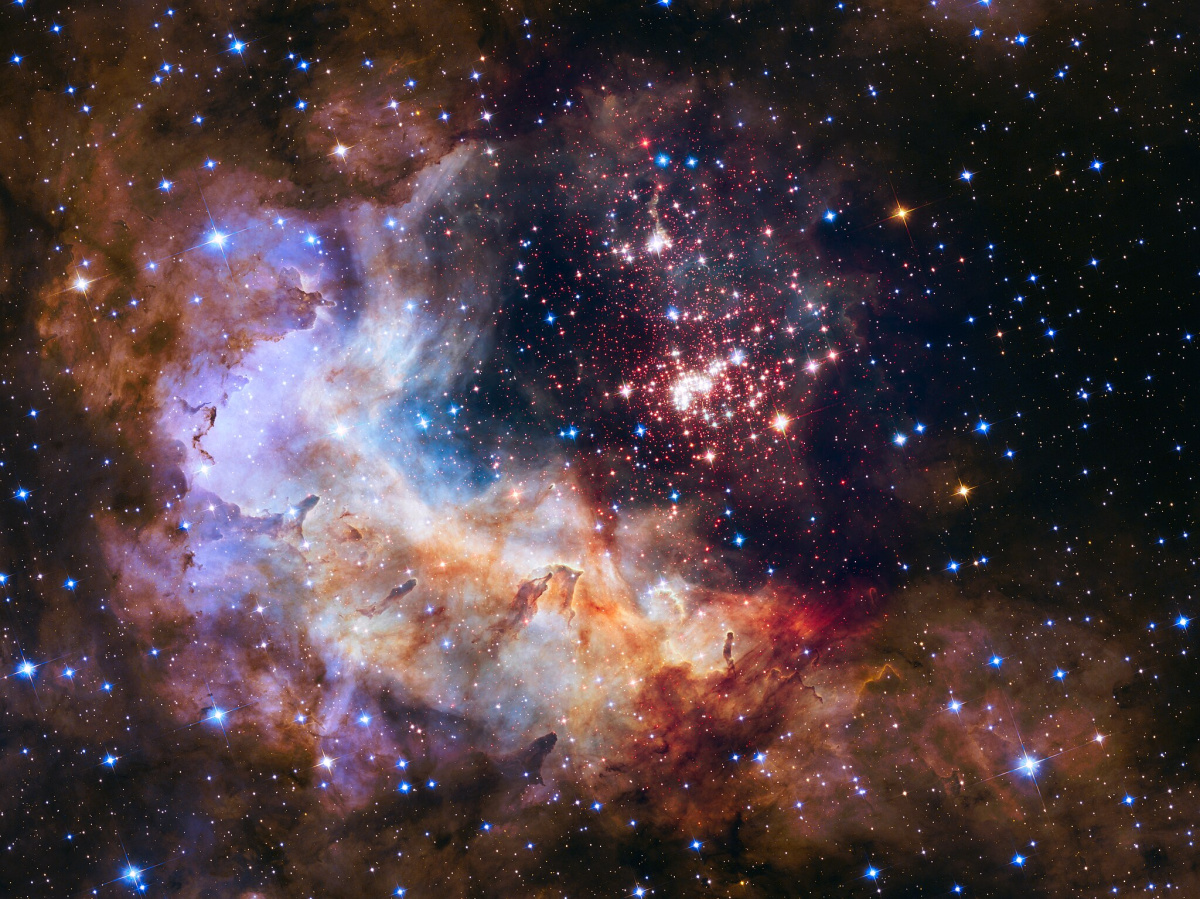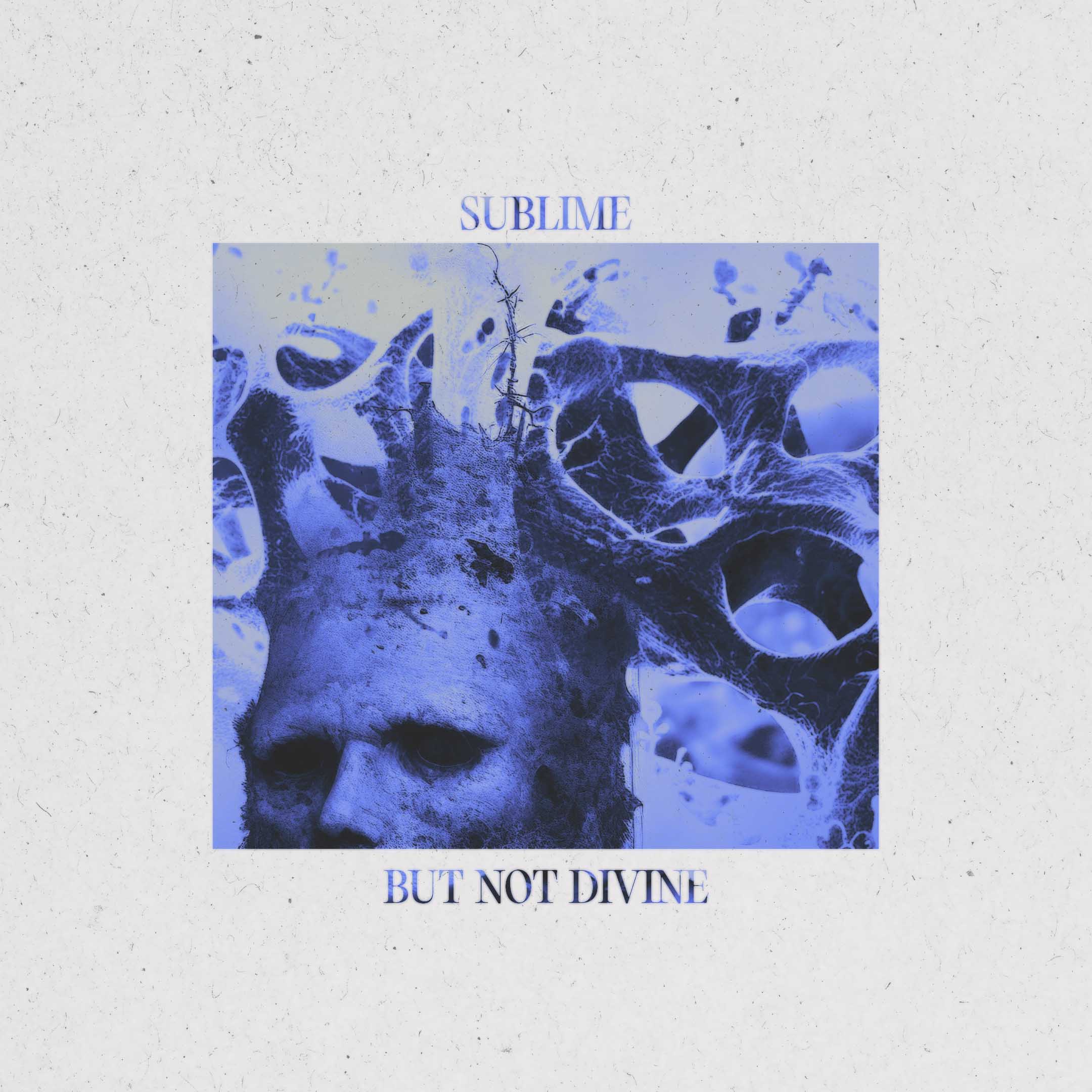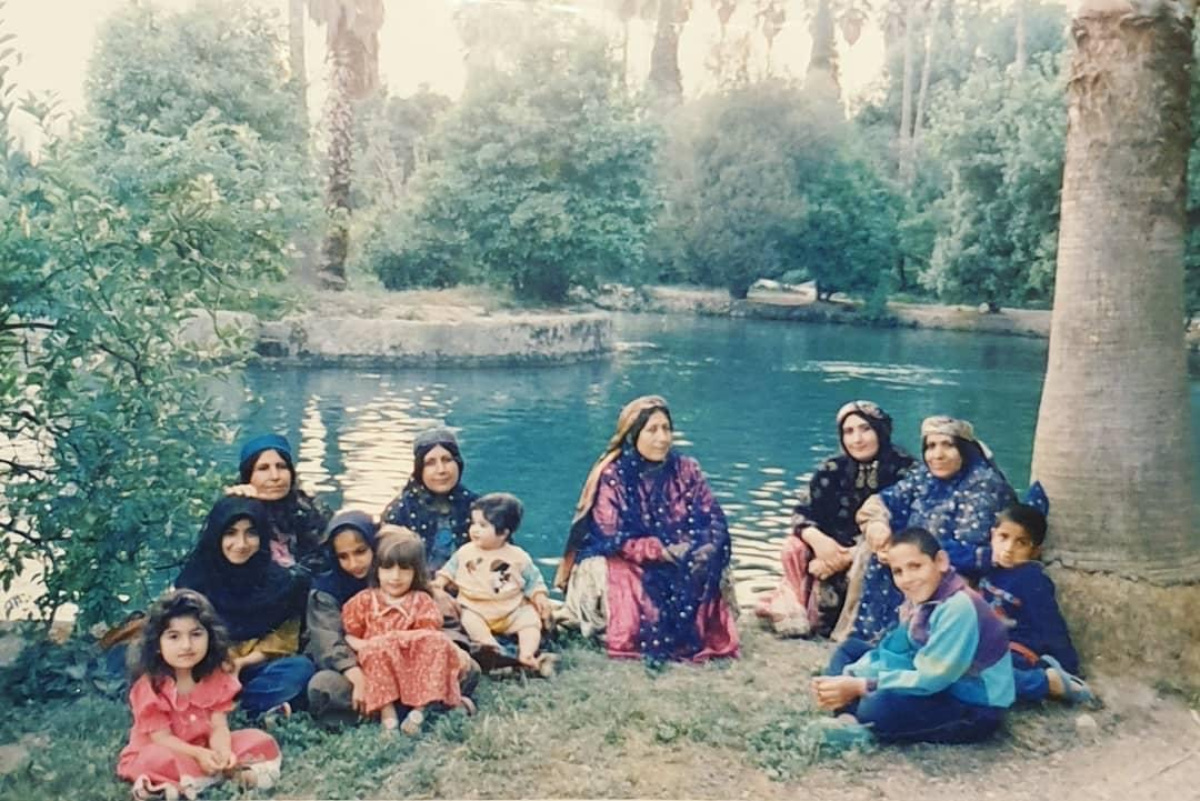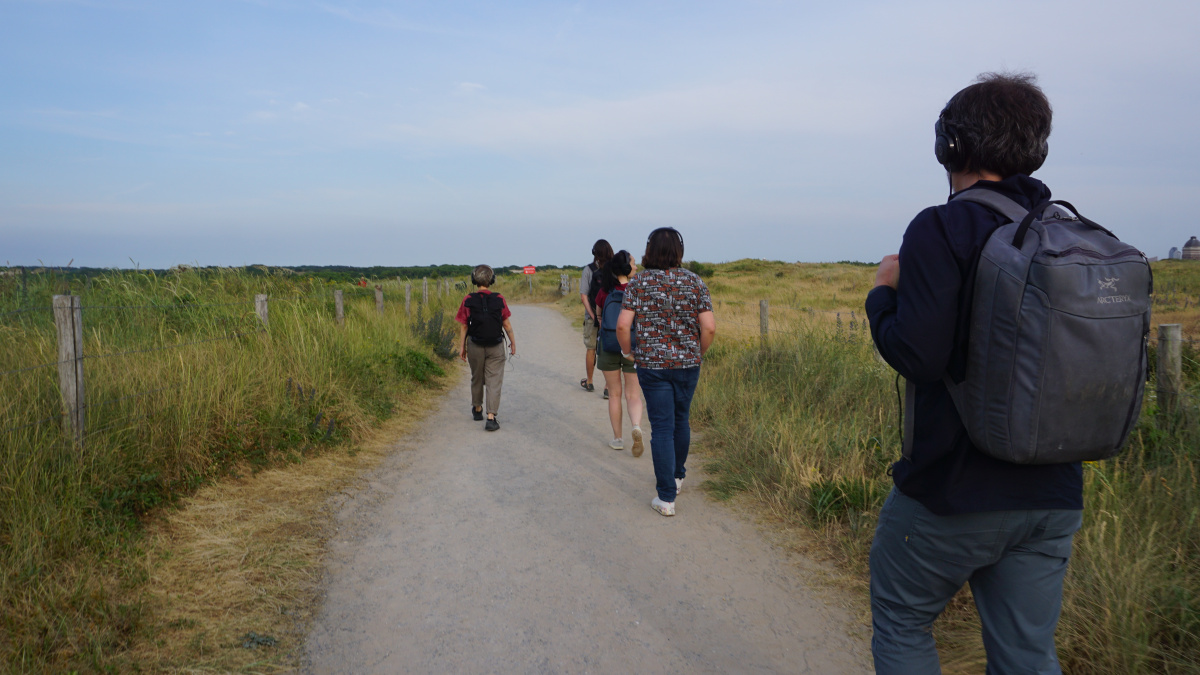When talking about listening in the broadest sense, listeners are usually at the center of attention, while they actually always already coexist with any other lifeform. So, what if the sound listens back? In this dialogic essay, Rewire Festival’s context curator Katía Truijen and Norient’s editor Philipp Rhensius discuss this topic and related ones as an introduction to their collaborative publication.
Dear Katía,
I’m writing this in a café in Berlin-Neukölln while I bend over to keep my head in the sun’s rays. After several weeks of cloudy weather, I came here to catch some vitamin D in the seating area outside. I’m not the only one who decided to spend the morning here. The seating area is fully occupied, even with a temperature of 1 degree Celsius. I guess everyone has this very personal relationship to the environment they inhabit. One expects certain things, one is disappointed or surprised, and, in any case, one’s internal being is influenced by external factors. My mind is now occupied with the topic of environmental listening which we choose as focus for our upcoming publication in collaboration with Rewire Festival. I like the two words because they are kind of ambivalent, as they can take on different meanings.
Listening TO the environment but also listening OF the environment itself.
The latter reminds me of a discussion in my Sonic Worlding writing workshop where we attempted to write with, not about, music. As we tried to come up with ideas that could illustrate the challenge, a participant asked, what happens if the track listens back?
How do you experience the soundscapes in The Hague?
Warm wishes,
P
Dear Philipp,
I’m writing to you from my corner-house apartment in Rotterdam West, it’s 8.24. Over the last two hours, I heard the streets and their inhabitants waking up. Outside: sounds of a few early blackbirds, some cars driving by, the squeaking sound of the waste container, and two dogs (and their human companions) that are getting to know each other. Inside: the humming noise from the boiler, creaking footsteps from my neighbor upstairs, a ticking sound from the radiator. A growling stomach. Slowly, more and more sounds are starting to overlap. More birds. More cars (one is playing a French hip-hop track). A few kids who are late for school. A noisy soundscape now, and it becomes more difficult to distinguish sounds from each other.
Many thanks for your thoughts on environmental listening. I agree with you, and I also like the idea that these two words contain these two different meanings. The listening to the environment, and the listening of the environment itself. Of course this is a simultaneous process. We listen, but other agents in the same environment are listening back. And they must hear different things. I wonder what those dogs were hearing this morning. Or the person that threw away their trash. What if the container has ears? Which also connects to the question raised during your writing workshop: what if the track listens back?
Beyond our immediate surroundings, I’m thinking of sound artists that invite us to «listen back» in many ways too. Both in time and space, to a previous moment where they recorded sounds in their urban contexts, or in the rural environments that they are connected to. I’m also thinking how, in these troubling times, environmental listening holds that meaning of listening back. The urge and capacity to listen back, to stay attuned, and to continue to «listen with» each other. I wonder how you see that these ways of listening to and of the environment and ways of listening back are reflected in some of the sound pieces and writing pieces in our upcoming publication? (I also feel it’s very much at the heart of what we aim to foster with Norient and Rewire as platforms for bringing all kinds of «listeners» together.)
Now I’m also thinking of the work of Annea Lockwood, who will be the artist in focus at Rewire 2024, and how so many of her compositions and sound works foster a kind of urgent listening, especially in these times of environmental disaster (for instance «Into the Vanishing Point» on insect populations that are collapsing globally). And how her work revolves around all sorts of relationships, especially between humans and their environment. But also how she emphasizes the idea that all kinds of sounds have the potential to be music, by being attentive to the complexity of their frequencies and rhythms. The idea that sounds are autonomous, and that they have a «lifespan» too.
For the title of our publication, I was wondering if it could be something connected to this idea of the lifespan of sounds and listening back?
Best wishes,
Katía
Hi Katía,
Thanks for sharing your listening environment. I feel like starting similarly: I read this while the panoramic drone of a distant airplane loosely occupies my mind, as it triggers a somewhat calming effect. It’s ironic to the point of being cynical when I juxtapose my dreamy association with the one of the writer Majd Shidiac. In his essay, he refers to the fighter jets above Beirut, fleetingly indicating a reminder of the horror on the Lebanese border.
In your description, I really like the attempt to not listen hierarchically. Which is impossible. Especially when it comes to – to make an artificial distinction for the sake of clarity – the cultural/anthropological sound you describe as a French hip hop track. What if you had described it as the other sounds, for example like this:
More birds. More cars (one comes with another sound that consists of a multitude of sounds, from occasionally occurring low thumps to more regularly occurring hissing hits and a monotonous human voice that seems to communicate with the mentioned sounds rhythmically).
OMG it’s so difficult to write about sounds.
I like your question: what were those dogs hearing? Or the container in which the person threw away their trash? Maybe they even heard you as a distant listener, as they realized that your body changed its position, maybe to being still, in order to be more attentive.
So now, as we «talk», the idea of listening back seems to condense itself. Just as we were discussing, I talked to the sound artist and musician Antye Greie-Ripatti aka AGF. In her essay Sonic Literacy – On Listening as Care inspired by her teaching children the art of listening, she writes: the argument = absolutely true: when you listen – «it» listens back.
I agree, artists who invite us to listen back or invite us to be sensitive to the fact that something listened back at the moment they recorded this something is very important! Greie-Ripatti further writes: «By practicing listening you teach an essential skill: you embody sensitivity, build sensibility towards your environment, and eventually instill the ability to care.»
I understand the work of Annea Lockwood and like-minded artists as political in a literal sense. As their work grants us insight or in-listening into worlds that are usually either not audible or ignored by human’s learned ignorance towards quieter sounds. A similar approach to Lockwood is the work of the biologist Juan José López and sound artist Ludwig Berger. I created an audio essay on Norient on their work, in which they talk about their project Insect Rhythmic Union that deals with the sonification of species that are soon threatened to become completely extinct – if we don’t listen. Will other artists be present at the festival who follow similar missions?
Have a good rest of the week and talk soon!
Philipp
Hi Philipp,
Thanks a lot for sharing these thoughts and ideas. Indeed, what if we would describe every sound as it sounds, and not in terms of what produces or triggers it, or how we learned to recognize and describe a certain combination of sounds. While I write this, I listen to a rhythmic ticking sound, sometimes interrupted by short moments of silence, and alternating with a slightly higher-pitched ticking sound. (It’s of course the keys of my keyboard that I’m hitting with my fingers, with the backspace key making the higher-pitched sound.)
I enjoyed reading that sound artist and musician AGF already wrote to you that when one listens, «it» listens back. I’m curious to read her piece on listening sessions as a phenomenon. The ways in which we listen, individually, collectively, and are being listened to, of course very much depend on where we are situated. I’m replaying parts of the sound recording of the midnight walk in central Delhi that you forwarded to me in my head. The recording by Mallika Taneja follows a walk of the «Women Walk at Midnight» that she initiated, and invites us to «join» the walk wherever we are, while «eavesdropping» by means of the recording device that Mallika carried with her.
Similarly, at Rewire Festival, there will be quite a few listening sessions in which we will listen across times and territories, from Delhi and Karachi to Colombo (through Norient’s TIMEZONES series), as well as the Himalayan region (with Nischal Khadka), Gouran in Iran (Khamoosh collective) or Armenia (Andrius Arutiunian and Giada Dalla Bontà). I wonder «where we are» when we listen to these recordings together, while each of us brings their own memories and places that the recordings may remind us of.
When the sound listens back. Does it hear the other sounds that it evokes in our minds? Does it hear itself sustained in other objects, bodies, or reflected off the walls? You were asking about an artist who will perform at Rewire and whom we could ask to make a playlist, perhaps with this idea in mind. I’m curious what artists like Saint Abdullah, Mabe Fratti, Laura Ortman or Chuquimamani-Condori would come up with. What do you think?
I hope you’re having a good Sunday! (Not sure where you are right now?)
Katía
Dear Katía,
Let me start with a recent text I wrote under the influence of listening.
I sit with my back to the people. Their presence is only indicated by their chatter. It rises and falls and swells and subsides. Wave-like, but directed by an authority. A bunch of grapes lies under the table next to a red scrap of paper. I am the space in between. Something for which there are no words. People suck on their e-cigarettes. When the wind isn’t blowing, you can hear a soft bubbling sound. Like the heavy breathing of a cartoon character. I am that character. I have a thousand lives and am not afraid of anything. I get up and walk when a jungle tune starts in the mix I’m listening to. Things become saturated with meaning. I love jungle for its determination. Its avoidance of a pastoral nature, its embrace of the artificial. The new nature that emerges from it.
Thanks for your text! I wonder if I would have guessed what you actually referred to if you hadn’t told me. I wonder if the word «silence» would have directed my line of thought to a keyboard. Or to a bird exploring its new environment after having arrived at its winter escape somewhere in the South.
The text above is an excerpt from a listening/writing exercise I do regularly. As you can see, I am sometimes beyond even attempting to describe, lacking words and energy, or talent maybe LOL.
I feel like in every attempt to write, there is a fear of betrayal. The mind threatens to go mad if it doesn’t feel what it should feel. I would love to hear other people’s experiences with listening and trying to write or do or think WITH the listened. In his creative nonfiction essay reflecting with the music of e.g. Saint Abdullah, Maya Al Khaldi, and Liliane Chlela, Majd Shidiac further explores this abstract listening relationship. As a loose writing prompt, he thinks about how «your perception of sound is what makes sound exist, and the fact that you are perceiving sound means that you exist within it».
The aspect you point out in the piece «Women Walk at Midnight» in which she invites us to «join» the walk wherever we are, is, I feel, central! When I did my first sound walk many years ago, I was very nervous about not listening correctly, not being open enough, not being able to put the perceived into words later. Until I understood that it is actually about «wherever we are», a mode in which the actual moment and the actual body are already enough.
Wherever we are. But where are we when we listen? Is it an imagined space, is it another dimension? I have been occupied with this question of space a lot, and the only thing I’m sure of is that it holds tension on many levels: between the listener and the listened, between memories and being now, between past, present, and future, between language that is always already lacking in accuracy and the phenomenon with its seemingly unspeakable energy zones…
Can you think of any artists/writers who would make a great example of balancing out this tension?
Warm wishes,
Philipp
Dear Philipp,
Thanks for writing!
It was funny how the real-time video call that we both joined yesterday was somehow interrupting this longer and more time-stretched e-mail conversation, and how I could actually listen into your sonic surroundings.
It’s nice to read the excerpt from your writing/listening exercise, and how these sounds affect the body.
I’m at the Rewire office now, which is getting busier every week, as we are getting closer to the festival, and I’m a bit too distracted by the many voices to describe all the sounds I’m hearing... Which makes me think about how we foreground certain sounds (and their sources) over others...
You mentioned the practice of sound walks and Sonic Worlding, and the tension between the listener and the listened, between memories and being-now, and the past, present, and future. During Rewire, Ukrainian composer and sound artist Anna Khvyl will invite a temporary nomadic community of listeners for her audio walk «Kyiv – Den Haag – Kyiv – Den Haag» in the dunes in Scheveningen (The Hague). Her audio walk is a sound performance in motion about remembrance, justice, and togetherness, bringing the ongoing war in Ukraine together with the history of World War II in Den Haag. Towards the end of the walk, Anna recalls a Syrian friend who said to her, that «some moments you remember, through the moments you are present». We listen, and we listen back.
I’m happy to hear you like the idea for the assembly at Rewire. I’ve already started to invite people to join us. I’ll keep you posted!
Warm wishes,
Katía
Dear Katía,
ha, yes, I guess video calls are way more interesting in a «performative» sense, as we can mutually listen to each other’s environments. For me, video calls lack the space of intimacy that is created by exchanging written language. Maybe because the dominant sense, the visual one, does not occupy the majority of the perceptive spectrum. Or the voice of the other is quiet while one’s own is reading out loud imaginary.
How is it for you? Do you «listen» to a written voice by creating an internal spoken voice?
I understand that too many sounds, like in the Rewire office, can create an overstimulation. As I sometimes work in cafés, I have some kind of insight into what I foreground. I can easily filter out music and domestic kitchen sounds or cars passing by, but language is more difficult. Both real conversations of people and lyric-driven music, such as hip hop. Whenever people talk or rap plays, it’s as if my mind automatically seeks for semantics. Maybe this is a fundamental difference between sound and language. The first is less loaded with determination and meaning, while the latter consists of precise meanings that exclude anything else in the time it is happening. The weird thing about sounds is that you sometimes only hear them when they become quiet. In the podcast featuring the sound artist Joseph Kamaru aka KMRU by Thomas Burkhalter and Daniel Jakob, Kamaru says: «My interest to sounds became more noticeable when we moved to Rongai, just outside of Nairobi. It’s more peaceful here, super silent.»
Jump-cut to the contrary: war. Anna Khvyl’s project sounds fascinating. Combining the impossible task of juxtaposing past, present, and future on an auditory level is a powerful idea. I wonder how the listening experience might be affected by the awareness of a war happening simultaneously a few thousand kilometers East. In his essay reflecting on Matthew Herbert’s album The End of Silence of 2013, which is based entirely on a six-second field recording of the Libyan civil war, musicologist Luis Velasco-Pufleau argues that sound can enable critical examinations of the rationale of war. He writes:
«If we haven’t endured war, it is difficult to situate testimonies and sonic remnants of war in a meaningful context. However, listening involves knowledge production: even if other people cannot imagine how terrifying war is, documents produced in wartime can enable critical thinking and further examinations of the rationale of war.»
In that context, I’m both interested and spooked by the thought of what happens when bullets and bombs listen back, apart from seeking to locate their enemies.
As a soft opposition to this, we re-publish an essay by the sound artist Jana Saleh. For her, field recording always comes with moral and emotional quandaries. She writes: «I could no longer bring myself to use these recordings in musical compositions because it was impossible for me to disconnect the sounds from the people and the city that created them».
Yes, I love the idea of listening sessions at Rewire. It’s such a simple setup, nearly primordial maybe (if we think about Stone Age people sitting around a bonfire) that can create such powerful moments of public intimacy. By the way, we should have started this editorial by listening to the sound piece The City at Dawn by the artists Pale Blue Dotter and beatnyk which deals with the soundscapes of Delhi waking up. Let’s do this now instead ,.)
OK, I’m getting hungry, I need to eat lunch soon.
Talk soon?
Philipp
Dear Philipp,
Do I listen to a written voice by creating an internal spoken voice? I certainly do.
While I’m writing this, I’m also listening to a version of my own voice in my head, somewhere between a whispered and spoken voice with a tiny bit of reverb I guess. When I read your e-mail, I hear your voice reading it too. Similarly with text messages, I enjoy reading people’s words «narrated» in a version of their own voice. Sometimes I can be sad when I can’t «recall» the sound of the voice of friends, and I was thinking of asking people some day to send me a voice message in which they tell me about other voices they want (me) to know or remember, and why. (What would be your response? We can stick to written text here of course.)
Beyond my own circle of friends, I think it’s important to document voices, especially the marginalized, dissident, and brave voices that are being silenced in these difficult times, as a reminder to continue and amplify their work across times and territories. Yes, I agree with you that listening can be a form of deep introspection. «What we hear may help us understand better who we are and where we come from» says Joseph Kamaru, referring to Raquel Castro’s film SOA in his piece Hearing is Believing. What we hear implies also «what we do not hear».
I’m going to take a nap. I didn’t sleep very well these last few nights, probably a bit nervous and excited about the festival that is approaching soon...
Enjoy your weekend!
Katía



